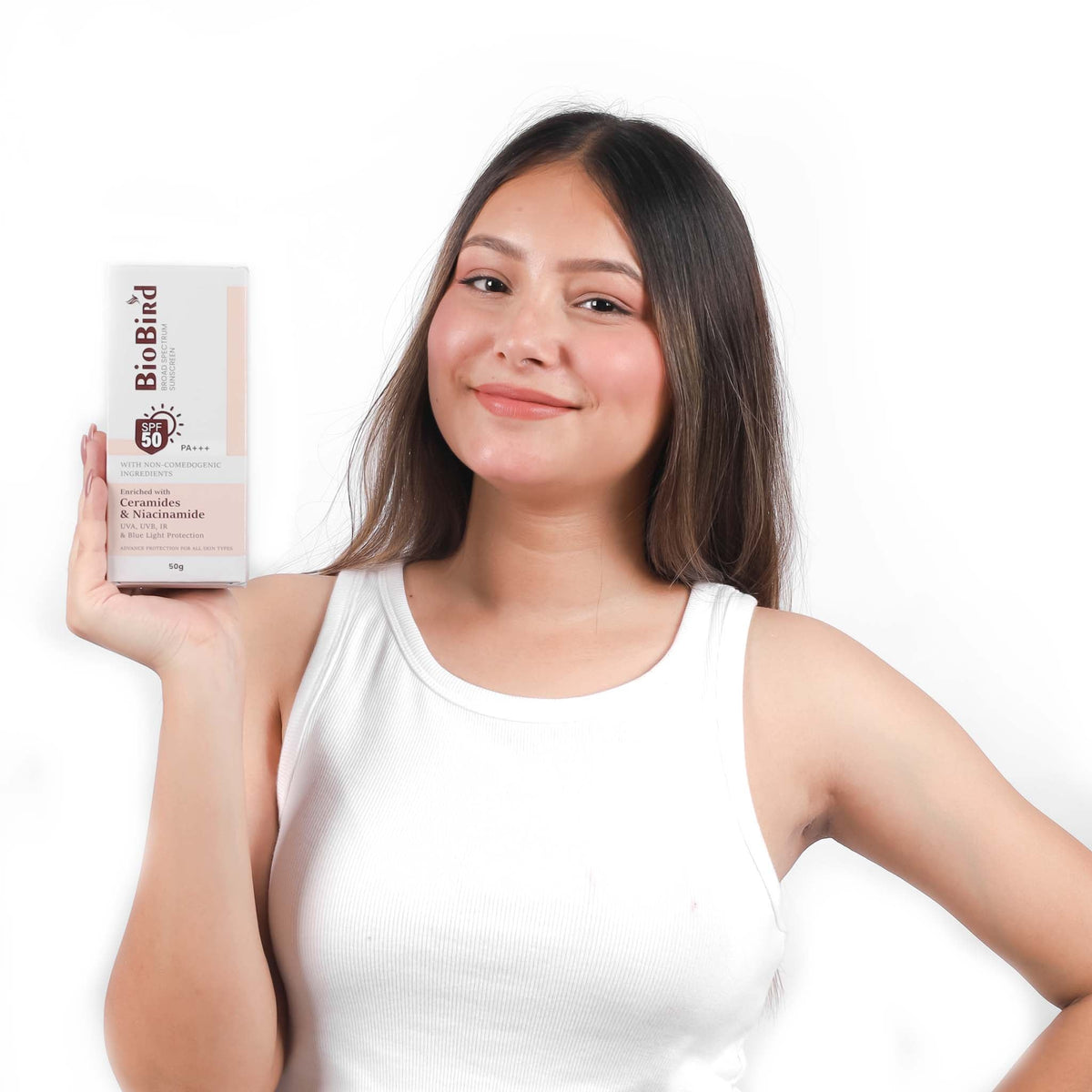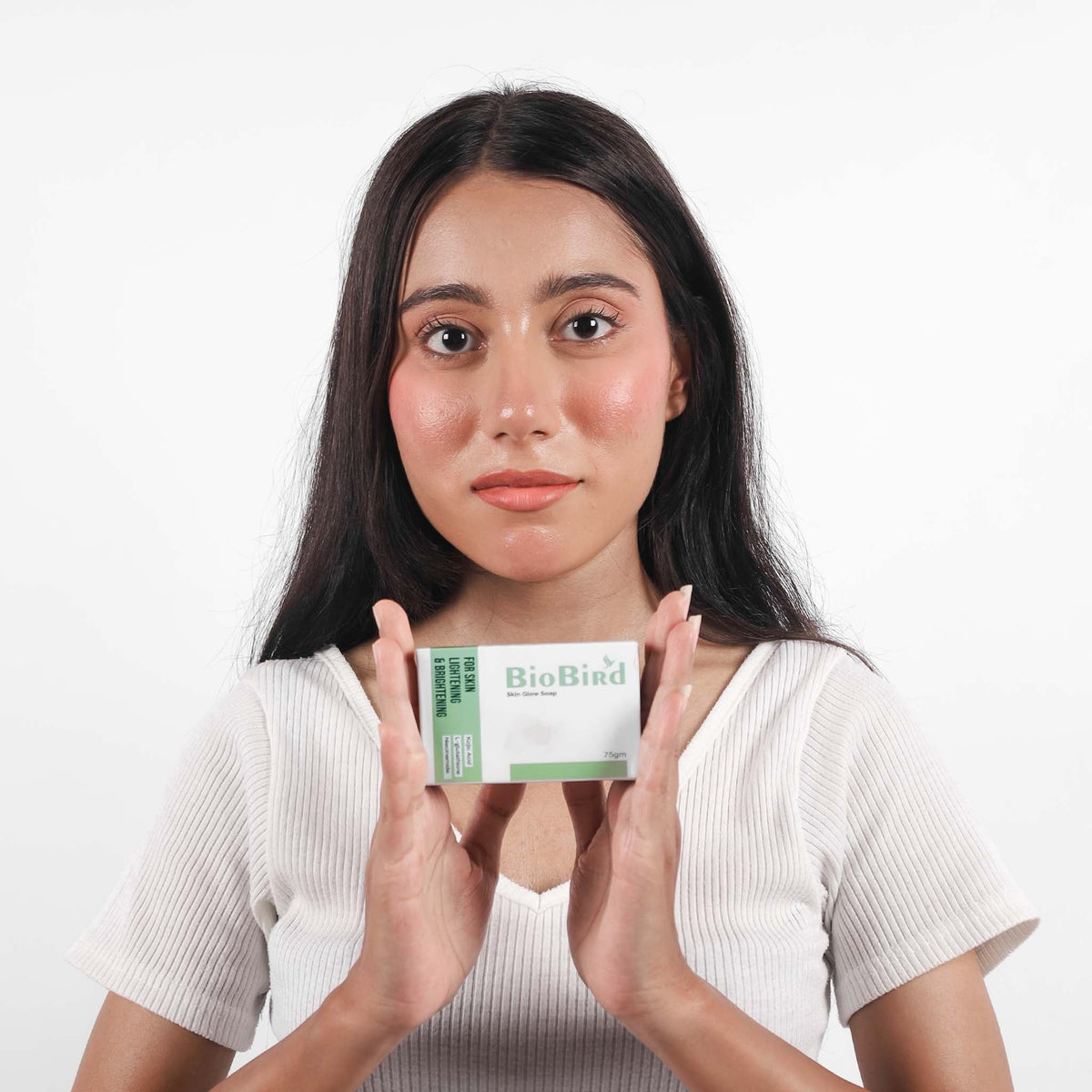You’d think healthy eating, drinking plenty of water, and hitting the gym regularly would be the perfect recipe for glowing skin and luscious hair. That’s what all the wellness blogs promise, right? But despite ticking every box on the “healthy lifestyle” checklist, your reflection tells a different story—dull, tired skin and thinning, lifeless hair.
The truth is, there’s one silent factor that you have been overlooking: stress. It affects the body quietly, disrupting hormones, disturbing the sleep cycle, and increasing the release of inflammatory mediators that lead to various skin and hair issues. While your body may appear fit on the outside, the effects of stress are visible throughout the skin and hair. Want to know how stress could be affecting your skin and hair more than you think? Keep reading to uncover the hidden impact and how to manage it.
Article Highlights
- Understanding Stress and Its Effects on the Skin
- How does Stress affect Hair Health?
- Tips to Reduce Stress for Healthy Skin and Hair
- Conclusion
- Frequently asked questions (FAQs)
Understanding Stress and Its Effects on the Skin
Stress, whether physical, mental, or emotional, triggers a range of reactions in the body that can directly affect the skin. It activates systems like the nervous, immune, and hormonal systems, releasing chemicals like cortisol and adrenaline that can cause inflammation, itching, and slow wound healing.

Stress can further worsen existing skin conditions such as acne, eczema, psoriasis, and rosacea, and may also lead to behaviors like scratching or picking at the skin. Additionally, it can create a cycle where skin issues cause more stress, and vice versa. Mind-body therapies like meditation, cognitive-behavioral therapy, and relaxation techniques have shown potential in managing stress and improving skin health.
How does Stress affect Hair Health?
Stress has long been thought to be a major cause of hair loss, so it's important to understand how stress and hair loss are connected. It can lead to changes in certain proteins in the body that are important for hair growth, such as brain-derived neurotrophic factor (BDNF) and nerve growth factor (NGF). These proteins help regulate hair follicles and support their growth and health. When stress alters the levels of these proteins, it can disrupt the normal hair growth cycle, potentially leading to hair loss conditions like androgenic alopecia (AGA).

Stress can also be the main cause of a condition called telogen effluvium (where hair falls out more than usual), or it can make hair loss conditions like alopecia areata or male pattern baldness worse. It can push hair into the resting phase, and hair loss usually becomes noticeable two to six months after a stressful event. In some cases, stress happens after hair loss, and this can make the situation worse or create a cycle where the stress keeps causing more hair loss.
Tips to Reduce Stress for Healthy Skin and Hair
Since you have been aware of the deleterious effects of stress on skin and hair, finding ways to reduce it is a great idea. Here are some strategies that can help lower stress and benefit your skin and hair:
- Practice Mindfulness & Meditation

Meditation, deep breathing, and mindfulness can reduce cortisol (a stress hormone) levels, which can help prevent skin breakouts, dryness, and hair thinning. Practicing mediation and deep breathing from YouTube videos for a few minutes can make a huge difference.
- Exercise Regularly
Research suggests that daily exercise and physical activity improve blood flow and release endorphins, which are natural mood boosters. Aiming for 30 minutes of moderate exercise like walking, yoga, or cycling a few times a week can help improve your skin and hair health.
3**. Maintain a Healthy Diet**
Stress can affect micro-nutrient concentrations such as vitamins and minerals, leading to skin issues like acne or dryness, and hair problems like thinning. Therefore, include nutrient-dense foods like nuts, green leafy vegetables, whole grains, and legumes rich in omega-3 fatty acids, vitamins, and zinc for both skin and hair.
- Sleep Well

Sleep deprivation increases stress and can lead to dull skin, hair loss, and faster aging. Practice a consistent bedtime routine to improve sleep quality and aim for 7-9 hours of quality sleep each night.
- Stay Hydrated
Dehydration can make stress worse and leave your skin looking dull or cause hair to become brittle. Drink plenty of water throughout the day—around 8 glasses, or more, depending on your activity level.
- Pamper Your Skin & Hair
A skincare or hair care routine can be a calming self-care ritual, and using nourishing products can help with stress-related skin or hair issues. Thus, pamper your skin and hair on weekends with a positive self-care routine, including using a calming face mask, deep conditioning your hair by using a hair mask, and relaxing your body with an essential oil bath.
- Engage in Hobbies and relaxing activities

Hobbies or activities you enjoy, like listening to soothing music, painting, reading, or cooking, can help lower stress by keeping you present and distracted from worries. So, find something that feels fun and relaxing for you, and try to make time for it regularly.
- Spend Time Outdoors
Being in nature has been shown to reduce stress and improve mood. The fresh air and sunlight are good for your skin, too, as long as you're using sunscreen! Go for a walk, hike, or just sit in a park for 20-30 minutes to soak in the outdoors.
- Limit Caffeine and Sugar
Excessive caffeine and sugar can increase cortisol levels, leading to more stress and potentially worse skin or hair issues. Try cutting back on sugary drinks, energy drinks, or excess coffee, especially later in the day, and replace them with refreshing green teas that lower stress levels.
- Embrace Emotional Support
Turning to friends and family for support can help ease stress by allowing you to share your thoughts and feel emotionally supported—sometimes a simple conversation can lighten the mental load.
Conclusion
While a healthy diet and regular exercise are essential for overall well-being, they may not be enough to maintain vibrant skin and hair if stress is left unchecked. Stress triggers hormonal imbalances, weakens the skin's protective barrier, and disrupts the hair growth cycle, leading to issues like acne, hair loss, and premature aging. Recognizing the profound impact of stress on your appearance is the first step toward reclaiming your health. By incorporating stress management techniques such as mindfulness, adequate sleep, and regular physical activity, you can support your skin and hair in their journey to recovery and resilience.
Frequently asked questions (FAQs)
Q1: Can stress cause my skin to become more sensitive?
Yes, chronic stress can increase the production of inflammatory neuropeptides in the skin, leading to heightened sensitivity. It can result in symptoms like itching, redness, and hives, making the skin more reactive to environmental factors and skincare products.
Q2: Is there a connection between stress and premature graying of hair?
Research suggests that stress may accelerate the graying process by affecting melanocytes, the cells responsible for hair pigmentation. Elevated cortisol levels can disrupt melanin production, leading to premature graying.
Q3: How does stress impact the healing of skin wounds?
Stress can impair the skin's ability to repair itself by disrupting the epidermal barrier, the outermost layer that locks in moisture and protects against harmful microbes. This delay in wound healing can exacerbate existing skin conditions and lead to prolonged irritation.
Q4: Does stress affect the oiliness of my skin?
Yes, Stress stimulates the production of cortisol, which activates sebaceous glands to produce more oil. This excess oil can clog pores, leading to acne breakouts and an oily complexion.
Q5: When should I consult a dermatologist about stress-related skin or hair issues?
If you notice persistent or worsening skin conditions like acne, eczema, or hair loss, it's advisable to consult a dermatologist. They can provide personalized treatment options by addressing the underlying causes.






0 comments